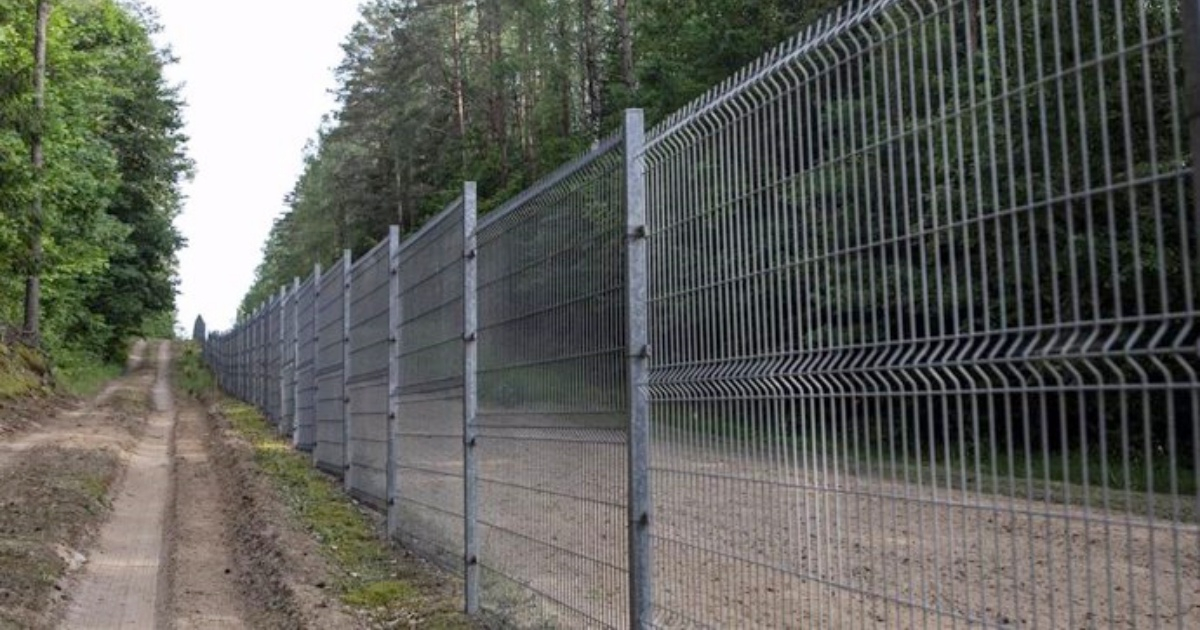Yunia Esther Peña, a Cuban resident in Mallorca, Spain, has been desperately trying for days to resolve the precarious situation of her sister and nieces, who are trapped without resources or water at the border between Lithuania and Belarus. A visa that was supposed to be legitimate turned out to be a scam, leaving them stranded and unable to proceed, Peña explained to the Mallorcan press. She is the owner of the restaurant Siurell in Port de Pollença.
"My family is dying in the wilderness," she exclaimed helplessly, observing how the political conflict between the two countries has left her loved ones in administrative limbo. The family had traveled from Cuba to Russia on a tourist package that turned into a nightmare. "They sold my family a tourist package to visit Russia, and they were supposed to be picked up at the Belarusian border to enter Lithuania. When no one showed up, they decided to cross on foot. Upon reaching the border, they were told they couldn't enter, and when they turned back, they were warned with gunfire that they couldn't return," Peña recounted from Vilnius, Lithuania's capital.
After four days without a solution, Peña was notified. Her family has been caught in a political conflict for nearly a week. They have run out of water and food and send her their location updates because they fear for their safety," she added.
The Cuban businesswoman, who arrived in Vilnius on Tuesday night, tried to approach the border crossing at Medininkai with a rental car. However, the police intercepted her and warned that any attempt to get within a five-kilometer radius could result in immediate criminal charges.
"I can't get through to Belarus either by taxi or bus to find solutions," she explained in frustration. "They're not allowed to go either way, and we're scared because of everything we're told happens at that border," she emphasized, extending her stay in Vilnius awaiting news from the embassy.
Peña fears that the wait will be prolonged in an area where her sister and nieces, including a minor, are in severe danger. For now, she only receives sporadic location updates to ensure they are alive.
Cubans Trapped Between Lithuania and Belarus
Yunia Esther Peña's family is not the only case of Cubans stranded at the border between Lithuania and Belarus. In May, a group of seven Cuban migrants, including a pregnant woman and a child, stranded at the border, decided to stop traffic at the border crossing as a protest against deportation. A local Lithuanian media outlet confirmed this at the time, citing a border service representative. In that case, the Cubans entered Lithuania after requesting political asylum at the Medininkų point, a request that Lithuanian authorities ultimately denied, considering the applicants did not meet the conditions.
Cubans, who are not required to have a visa for Belarus, often travel to that country and then make risky transits to achieve political asylum or refugee status in nearby countries. Until about a year ago, the route started in Serbia, a country that also did not require visas for Cubans until it decided to control human trafficking at its borders.
Alert Over Increasing Number of Cubans in Similar Situations
A Facebook post this Thursday by netizen Alejandra Pino Díaz described the situation of a growing number of Cubans at the Lithuanian border as "horrible." "Coyotes transporting them from Moscow are lying, charging them thousands of euros to leave them in extremely unsafe conditions. I have a friend volunteering at the Lithuanian border. The reports are desperate. Right now, there are five Cubans, including a 16-year-old girl, trapped between Belarusian police bullets and the Lithuanian patrol that won't let them pass," Pino Díaz said, referencing Cubans who likely include Peña's relatives.
"A couple of days ago, a baby was abandoned with its parents in the forest under the rain, found in serious condition, and two women were tortured, one of them raped. Please help me raise awareness," the whistleblower added.
Political Conflict Exacerbates the Situation
The boundary between Lithuania and Belarus serves as the external border of the European Union and the eastern border of the Commonwealth of Independent States. Months ago, the conflict between the two countries escalated when the border crossings of Lavoriškės and Raigardas were closed to "reduce risks associated with increased transit flows through Lithuania from Belarus and the activities of Belarusian intelligence and security services against the state and citizens of Lithuania."
Two border crossings at Medininkai, where Peña's family attempts to cross, and Šalčininkai, remain open with restrictions.
FAQs on the Belarus-Lithuania Border Crisis
In light of the ongoing crisis at the Belarus-Lithuania border, here are some frequently asked questions and their answers to help clarify the situation.
Why are Cubans stranded at the Belarus-Lithuania border?
Many Cubans travel to Belarus without needing a visa and then attempt risky transits to nearby countries like Lithuania in hopes of achieving political asylum or refugee status.
What caused the current political conflict between Belarus and Lithuania?
The conflict escalated when Lithuania closed several border crossings to reduce risks associated with increased transit flows from Belarus and activities of Belarusian intelligence and security services against Lithuania.
What are the risks faced by migrants at the border?
Migrants face severe risks, including lack of food and water, exposure to harsh weather conditions, and threats from both Belarusian and Lithuanian border forces.
